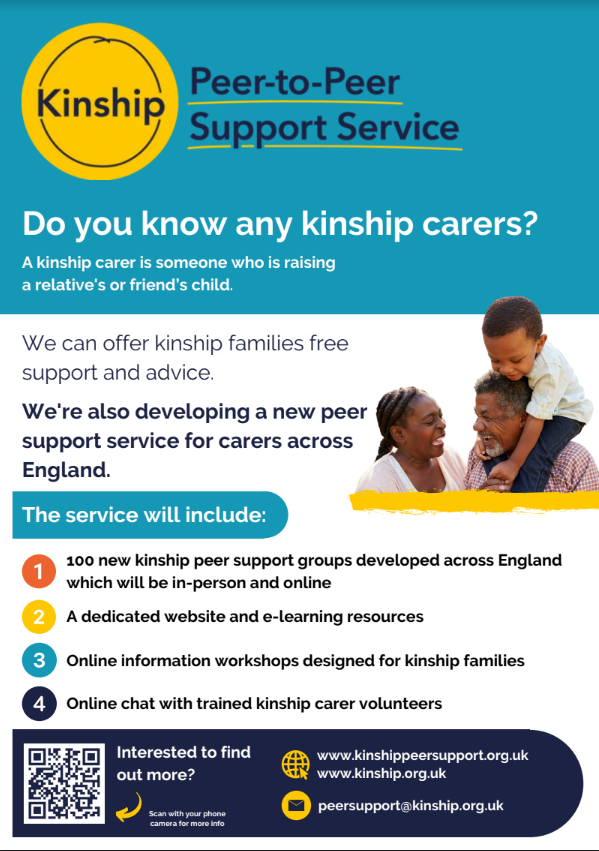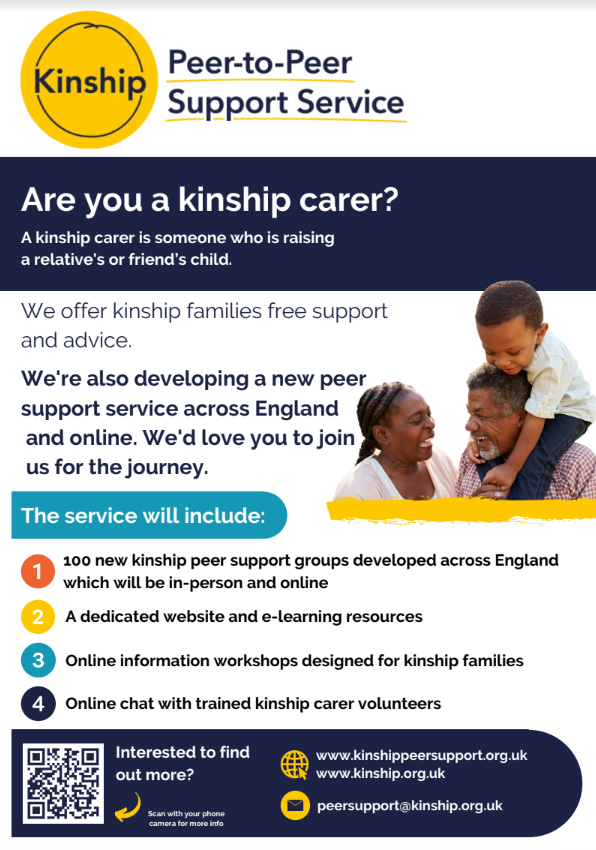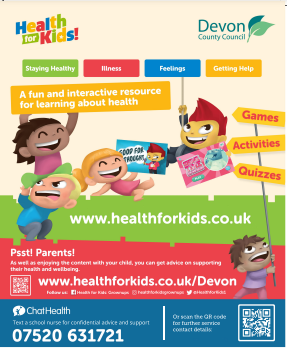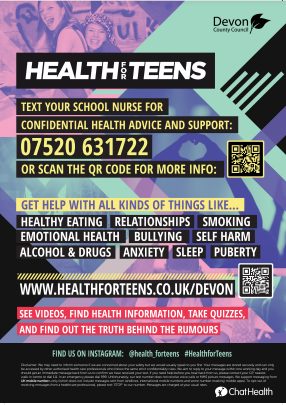Child protection and E-Safety
Safeguarding and Child Protection
At Heathcoat Primary School we recognise our moral and statutory responsibility to safeguard and promote the welfare of all pupils. We endeavour to provide a safe and welcoming environment where children are respected and valued. We are alert to the signs of abuse and neglect and follow our procedures to ensure that children receive effective support, protection and justice.
Our Designated Safeguarding Lead is Demelza Higginson and our Deputy Safeguarding Leads are Angela Sullivan, Becky Budden, Vicki Chappell and Mike Payne and are available to discuss any safeguarding concerns you may have. The Child Protection Governor is Helen Hyland.
The Designated Safeguarding Lead can be contacted on DSL@heathcoat.devon.sch.uk
All child protection concerns need to be acted on immediately. If you are concerned that a child may be at risk or actually suffering abuse please contact Demelza Higginson, Becky Budden, Angela Sullivan, Vicki Chappell or Mike Payne on 01884 252445 or alternatively contact MASH (Devon County Council multi agency safeguarding hub) who are available to discuss your concerns 0345 155 1071.
Please follow this link for further information on safeguarding: http://www.devonsafeguardingchildren.org
This PDF offers young people guidance around sex and relationships: SARC Key messages for young people poster DRAFT 2 (002).
Download our Child Protection Policy here. HPS Safeguarding and Child Protection 2024
Internet Safety
It is the responsibility of all staff at Heathcoat Primary School to encourage and promote the safe and responsible use of new technologies for teaching and learning. Acceptable-use guidelines for promoting responsible use of the Internet with key points and successful strategies are available to all staff.
Internet access for pupils and staff is filtered through the use of our Internet Service Provider (South West Grid For Learning). The SWGfL system allows for detailed analysis at individual level of all Internet activity. This filtering is supported by a system that can be set to block specific Internet addresses as and when appropriate.
Cyber-bullying between pupils that happens outside of school systems is primarily the responsibility of the individuals involved and the services (e.g. Social Network site) in question. Although the school will of course support parents and pupils who are the victims of such bullying in any way it can, the ultimate responsibility remains with the individuals and their parents. We would encourage victims to involve other agencies (e.g. Police, the Social Network company in question etc.) in such instances and will assist in making those connections when necessary.
Any evidence of cyber-abuse of Heathcoat Primary School staff (e.g. via mobile phone or via the Internet) will be treated with extreme seriousness and other agencies (e.g. Police) will be involved as appropriate.
Download our online safety policy here. HPS Online Safety Policy 2023
Internet Matters Age Guide 0-5s
Internet Matters Age Guide 6-10s
Internet Matters Age Guide 11-13s
Guidelines for Internet-use
General
Pupils are responsible for good behaviour on the Internet and are expected to follow the school behaviour policy just as they are in a classroom or around the school environment.
The Internet is primarily provided for pupils to conduct research, publish work and access software to support learning. Parent’s/carer’s permission for Internet use is presumed to have been given unless explicitly communicated to the school otherwise. Access to all learning resources is a privilege that requires responsibility. All pupils have signed a class copy of the acceptable use agreement.
Individual users of the Internet are responsible for their behaviour and communications over the local school network and the Internet. Users must comply with school standards and honour the school values.
Network management and other senior members of staff may monitor and review files and communications to ensure that users are using the system responsibly. Users should not expect that files stored on servers (within school, on the Internet or on storage media) are always private.
During school, teachers will guide pupils towards appropriate learning materials. Outside of school, families bear responsibility for such guidance including when children are using Google Classroom.
The following are not permitted within the school environment through any medium:
- Sending or displaying offensive messages or pictures.
• Using obscene language.
• Harassing, insulting or attacking others.
• Damaging computers, computer systems or computer networks.
• Violating copyright laws.
• Using others’ passwords or accounts.
• ‘Hacking’ into others’ folders, work or files for any reason.
All users of the Internet from within the school system (all pupils and all
staff) are deemed to have agreed to the school’s acceptable use policy.
Download the acceptable use policies here:
Guides to social media platforms
- Supporting Children to Deal With Upsetting Content – A Guide for Parents and Carers
- What Parents and Carers Need to Know About WhatsApp
- What Parents and Carers Need to Know About TIKTOK
How safe are the sites, apps and games your child uses? To children, online life is real life. The NSPCC has joined forces with O2 to help parents explore and understand online life as kids know it. Run in partnership with O2, Net Aware offers parents useful information about each social network, including the age guidance for users. For more information visit: www.net-aware.org.uk or www.nspcc.org.uk.
Are you worried about online sexual abuse or the way someone has been communicating with you online? Help and support can be found on the CEOP website: https://www.ceop.police.uk/safety-centre
For additional internet safety information visit: Digital Parenting – Vodafone UK News Centre or https://www.thinkuknow.co.uk or https://www.childnet.com or https://saferinternet.org.uk
Download online safety guide
Apps to help children stay safe online
The BBC have a website and app called Own It. The website has a lot of content for children to help them navigate their online lives, and the free smartphone app comes with a special keyboard which can intervene with help and support in the moments that children need it the most. It can be downloaded for free in the Google Play Store and Apple App Store.
SafeToNet is an app for parents to help them safeguard their children from online risks like cyberbullying and sexting, whilst respecting their child’s rights to privacy. The SafeToNet Foundation is providing UK families with free access to 1 million licences during coronavirus.
Nintendo Switch Parental Controls
All tech devices come with parental controls, but they’re not always easy to find or understand and they can differ quite significantly from device to device.
The Nintendo Switch, which is a very popular device, has a range of parental controls such as browser access, restricting games based on age, chat settings and more and more.
Internet Matters have created a useful guide parental-control-nintendo-
Talking About Online Harassment and Abuse
Sadly, many children and young people believe that online harassment and abuse are just a part of being online, in other words – normalised. This should never be the case, but it can be difficult to strike up a conversation. Internet Matters have a really good guide for parents which they can use for conversation starters.
How to talk about harassment and abuse online | Internet Matters
Managing Screen Time
Internet Matters have a series of tips and guides to help with this including setting up parental controls, finding other activities to do, agreeing on boundaries and more.
Managing children screen time – Parent advice | Internet Matters
Zero Tolerance To Hate Crime
The school has pledged its support for this campaign. To read more visit the Devon and Cornwall Police website here.
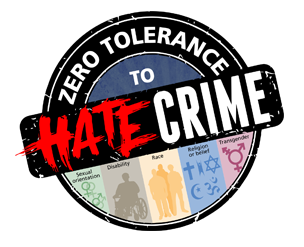
Operation Encompass
The school has been given the opportunity to take part in a project that will run jointly between schools and Devon and Cornwall Police.
Operation Encompass is the reporting to schools, prior to the start of the next school day, when a child or young person has been exposed to, or involved in, any domestic incident.
Operation Encompass will ensure that a member of the school staff, known as a Key Adult, is trained to allow them to liaise with the police and to use the information that has been shared, in confidence, while ensuring that the school is able to make provision for possible difficulties experienced by children, or their families, who have been involved in, or exposed to, a domestic abuse incident. The Key Adults in school are Miss Higginson, Mrs Budden, Mrs Sullivan, Mrs Chapple and Mr Payne.
We are keen to offer the best support possible to all our pupils and we believe this will be extremely beneficial for all those involved.
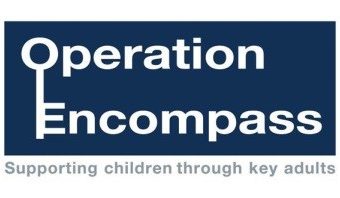

Kinship Carers
Kinship Carers are trying to reach as many kinship carers and colleagues in other family support services as possible.
Health for Teens and Health for Kids Websites
DCC Public Health Nursing has launched two new websites to provide school age children and their parents/carers with health and wellbeing advice. The websites, developed with Leicestershire Partnership NHS Trust, include evidenced based national content which has been co-designed with parents, carers, children and young people as well as locally written content and information about Devon services.
- Health for Kids provides information for primary school aged children and includes games, videos and quizzes. The site consists of four different worlds: Staying Healthy, Illness, Feelings and Getting Help. Each world is populated with different areas for children to learn about their health.
There is a separate area for grown-ups for in-depth guidance and localised information (www.healthforkids.co.uk/devon)
- Health for Teens provides information and advice for young people, including videos, listicles, quizzes, health information, truths and rumours. There are several different sections ranging from feelings, health, lifestyle, relationships and growing up. There is also a ‘your area’ section which includes information on Devon services and advice from local practitioners (www.healthforteens.co.uk/devon). These services pull through below any related content a young person accesses to facilitate improved awareness and access.

